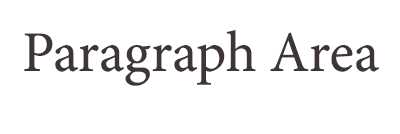Going for higher education abroad is a golden deer for many. Others have panta rice. Not everyone gets a foreign student visa.
And there are many who will get admission and visa in foreign universities with a little effort. It depends on the student’s eligibility.
Even get a scholarship. Surely the question arises in your mind, who is the owner of that fortune. Who would be lucky again?
Why go abroad for higher education? How to go and which country to study will be good for you.
Read the following text carefully.
Contents
- 1 Why take higher education abroad?
- 2 How to get a student visa abroad?
- 3 What to do to get a scholarship?
- 4 What does language proficiency look like?
- 5 What is the cost of studying abroad?
- 6 Which country to take a student visa?
- 7 How to choose the right course?
- 8 How to process student visa?
- 9 Which country has the opportunity to study without pay?
Why take higher education abroad?
If you think about the cost then there is no better option than the government universities of the country. After that why want to study abroad?
Because those who give importance to the quality of education, job resources and safe living, want to get admission in foreign universities.
Foreign universities are generally free from student politics and the quality of food is very good. The quality of education is there.
How to get a student visa abroad?
Suppose you want to study in a world famous university in Canada. So your first task is to prepare yourself to go to that university. By preparation I am not saying that only getting good results will do. Rather, you should take a good look at the socio-economic conditions of the country where you want to go for higher education. Ability to adapt oneself to the environment of the concerned country or university should also be developed. The offer letter is the letter that the respective university will give you with initial permission for admission. Every student should read the offer letter given by the university again and again. Know the tuition fee amount and other things well.
What to do to get a scholarship?
Scholarships require good results, language skills, timely planning and relentless effort. These are the prerequisites for getting higher education abroad scholarships. If these things are followed properly, the scholarship will come within reach very easily. Otherwise you have to do pandashrama. Then the golden deer called scholarship will no longer catch. Keep in mind that the scholarship is in the student’s country
He is also eligible for scholarships abroad. Results are poor, for students with poor English skills but less chance of getting a full scholarship.
Yes he can get a partial scholarship. The main thing is, do you have what the concerned university or college wants for the higher education scholarship?
You can visit websites like Youth Opportunities, youth carnival, open box, for higher education scholarships abroad.
Or the country or university in which you want to study should regularly visit the own web site of the country or university. And watch out when they publish higher education scholarship notification.
What does language proficiency look like?
What you need next is language skills. Since English is the main language of America, Canada, England, Australia, etc., English should be proficient. Since almost all the countries of the world have to study in their own language or international language in English language.
Therefore, language skills are required for pursuing higher education abroad. As an international language, English can be studied in almost all countries of the world. Therefore, students interested in pursuing higher education abroad need to have proficiency in English. In other countries, English is required to be read and written in almost all subjects. Different educational institutions require scores on different scales. But mostly IELTS score is 5.5 to 6.5. And TOEFL score is between 60 and 100. Also, in some cases, GRE ie Graduate Record Examination, GMAT ie Graduate Management Admission Test, NEWSAT etc. are required.
What is the cost of studying abroad?
As far as the amount of money required for pursuing higher education abroad, be sure at the outset whether your family can afford it or not. Also, if someone else is bearing your expenses, then make sure that you are blood related to him or not. Because, the visa office officer wants the student to have blood relation with the bearer of education expenses. And bank solvency certificate is required to be submitted at every embassy as proof of financial solvency. Which has to be accepted from the concerned bank. As per the instructions of the embassy, medical certificate is also to be provided in necessary cases.
Which country to take a student visa?
Choosing a country should be based on whether you will get a scholarship for higher education abroad. Because studying abroad is associated with expenses. If you get a scholarship, then there is no difficulty in going to the number one university in the world ranking of the number one country in the world.
But if you don’t get scholarship. Or get a partial scholarship in case you should select the country according to your ability.
Because, in America, it usually takes twenty million taka per year to study graduate level. In Canada it takes fifteen lakh rupees a year.
Fifteen to eighteen lakh rupees are required in Australia and UK. Bangladesh in Malaysia, China and India
Tuition fees are similar to private universities.
How to choose the right course?
Course selection is very important in all higher programs including graduate, post graduate and Ph.D degrees. In the current era of globalization, among the many courses in higher education, you need to choose a course that will be considered as a preliminary preparation for your future professional skills.
Moreover, you can also choose a completely new subject for higher education abroad. You can also choose any subject that is not popular in our country but is important and in demand in the global context. However, it is better to select a course for higher education that is in demand in our country as well as abroad.
How to process student visa?
After getting admission in the educational institution they should reach the institution within the deadline mentioned in the offer letter or admission letter. Otherwise the admission will be cancelled. So you need to collect the visa of that country before the specified date. Although there are some differences in the issuance of visas in different countries of the world, almost all the rules are the same. To get a visa in any country, first you have to collect the visa application form of that country.
In some cases, the educational institution provides the visa application form. If not, collect the visa application form from the specific embassy and submit it to the embassy along with all the necessary documents with correct information and collect the visa through the interview on the specified day. Documents generally required for visa-
Educational Documents: Certificates, Mark Sheets, Original along with attested photocopies of certificates from Head of Institution.
Passport: Passport should have at least 1 year validity and educational along with occupation, date of birth and all other details
The documents must match. Get your passport if you don’t have one.
Admission certificate or offer letter from the educational institution.
Proof of financial ability: See details in Application and Admission Processing section.
Photo: A smart and clear photo taken on a white background, in clean decent clothes is best and preferably in colour.
Tuition Fee Bank Draft: Tuition fees vary from institution to institution.
Proof of Language Proficiency: See Application and Admission Processing section.
Police Clearance: Police clearance can be obtained by approaching the respective police station and paying a fixed fee.
However, if you are accused of being involved in activities against the country and law, you will not get a police clearance.
Which country has the opportunity to study without pay?
Germany has the opportunity to study at one of the world’s best universities for little or no cost. The German government spends a large portion of its budget on education. So here you can get good quality education with scholarship. If you don’t get a scholarship, the graduate course costs only for $3500 per year.
The five Scandinavian countries of North Eastern Europe (Denmark, Finland, Iceland, Norway, Sweden) can also be studied with great advantage. For example, higher education at bachelor’s, master’s and PhD levels in world-class universities is completely free in Norway, where Norwegian language skills are prioritized. Denmark and Finland also have various scholarship arrangements. Through these scholarships, apart from free studies, scholarships for living and food are available. However, these facilities are usually offered for Masters or PhD degrees.


